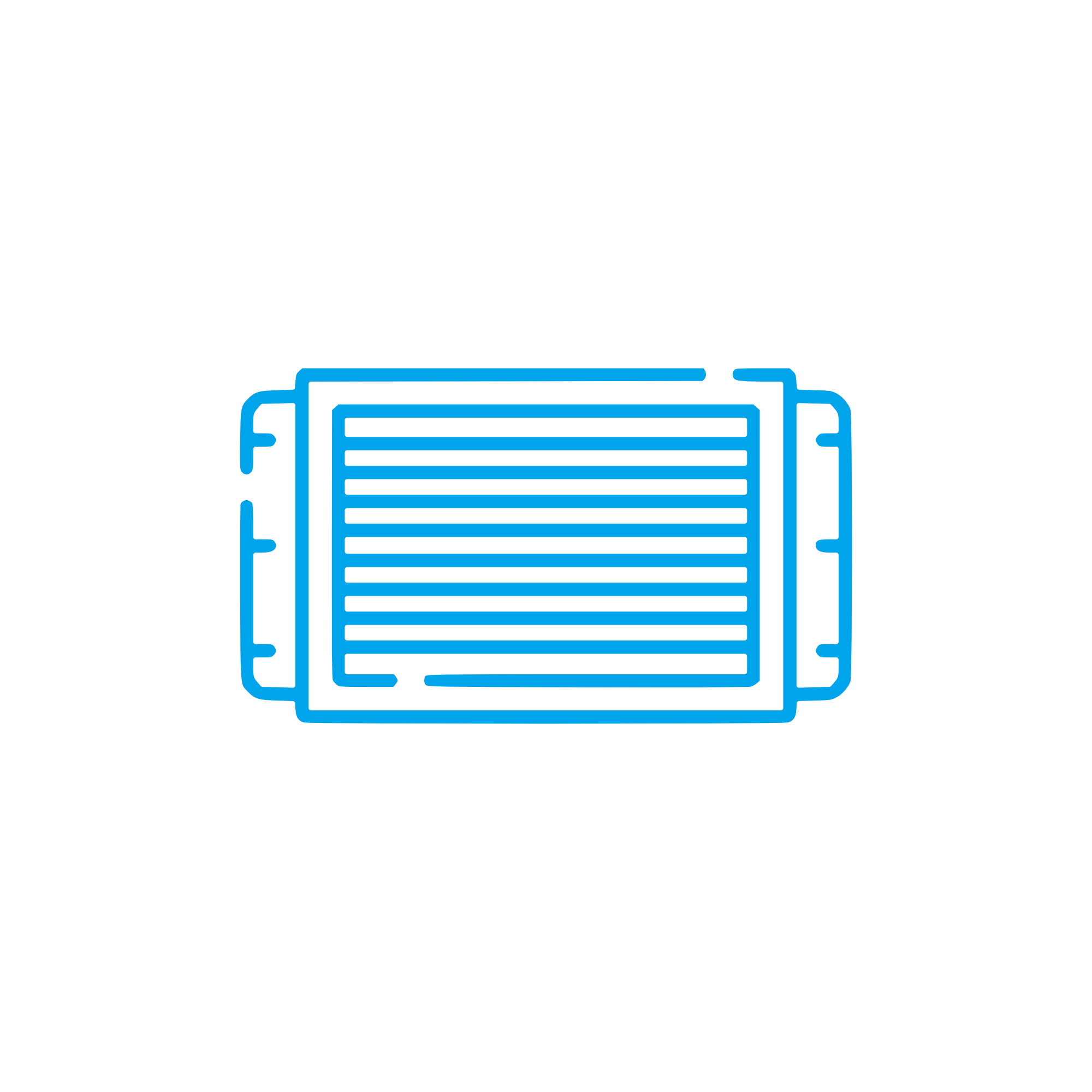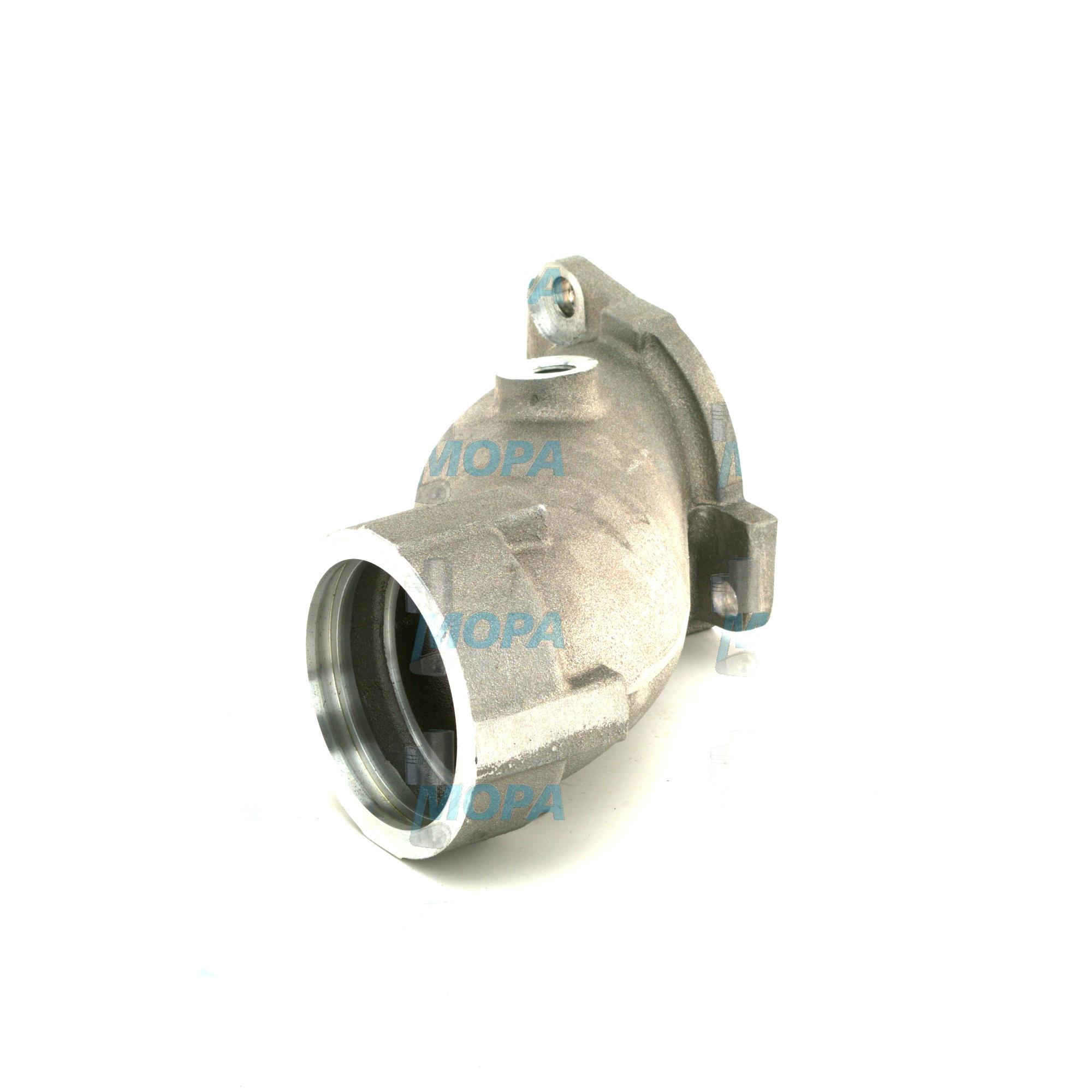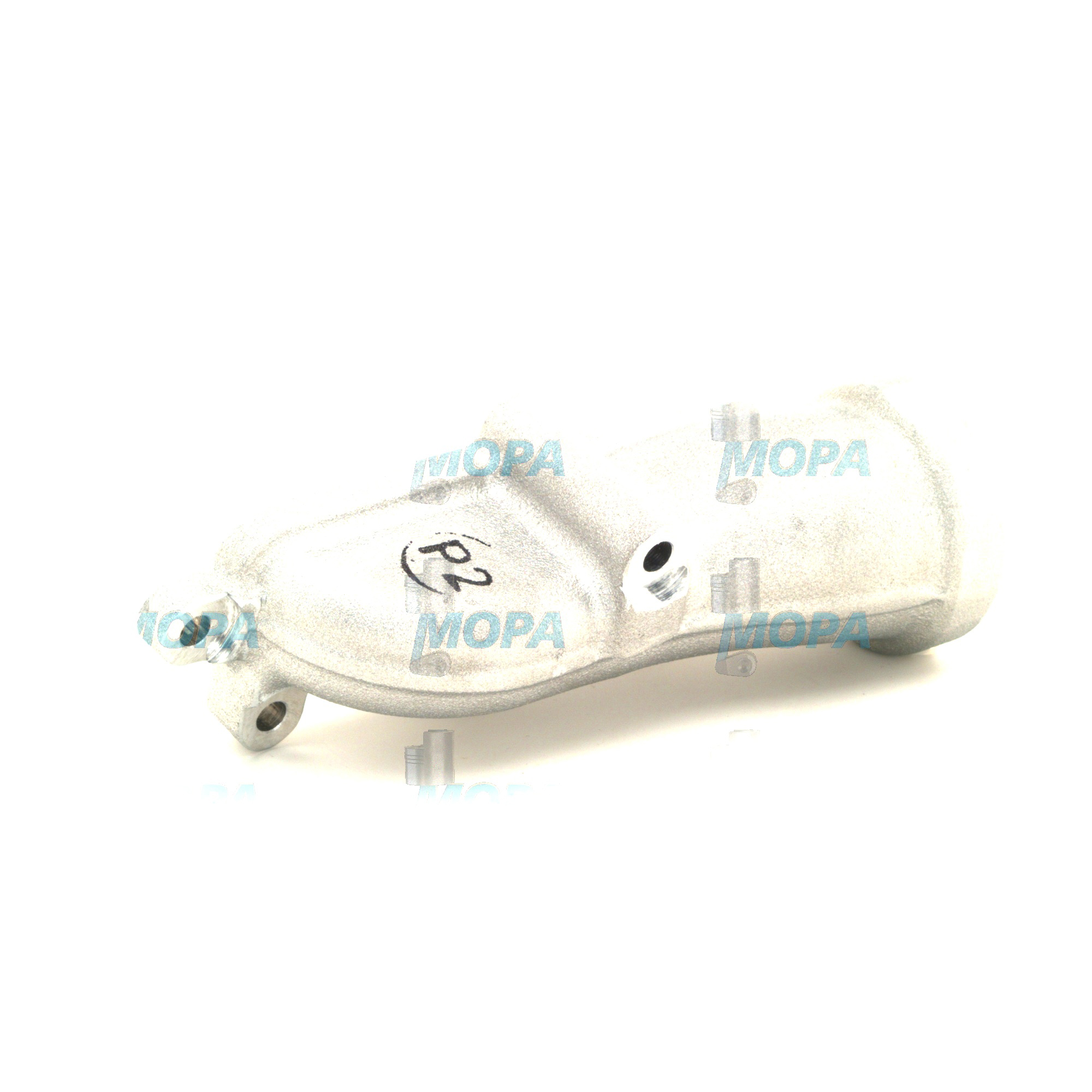COOLANT ELBOW interfaces for high‑efficiency Coolers
Coolers are precision heat exchangers that stabilize operating temperatures in marine, diesel, and gas engines. They extract heat from jacket water, lube oil, charge air, and fuel circuits so engines can deliver rated power with controlled emissions and minimal thermal stress. As part of a closed-loop cooling system, Coolers maintain the balance between heat generation and heat rejection, preventing hotspots, preserving lubricant film strength, and protecting sensitive components such as cylinder heads, liners, and turbochargers. In this circuit, the COOLANT ELBOW connects hoses or pipes to cooler inlets and outlets and supports clean, low-turbulence flow routing under vibration and thermal cycling—an essential detail for consistent cooling performance.
Coolers in a diesel engine: heat exchange performance and the COOLANT ELBOW
In a diesel engine, Coolers operate as the central thermal management modules. Jacket water Coolers transfer heat from the engine’s fresh-water loop to a secondary medium (seawater, freshwater, or glycol), while shell-and-tube or plate-type Coolers on the lube oil circuit keep viscosity within the optimal range. Charge air Coolers (intercoolers/aftercoolers) reduce intake temperature after compression, increasing air density, improving combustion efficiency, and reducing NOx. Properly sized Coolers are engineered to meet design duty at a specified flow, temperature differential, and allowable pressure loss.
Flow optimization is crucial. The COOLANT ELBOW marine engine connection at the cooler’s header guides the coolant through directional changes without sharp restrictions, protecting against cavitation and erosion at tube entries. Correct radii and surface finishes at these interfaces help maintain Reynolds numbers in the desired range, preserving overall heat transfer coefficients. In two-circuit marine systems, the engine’s thermostatic controls modulate bypass versus through-cooler flow to hold jacket water near setpoint; stable distribution through the elbows, headers, and core is key to avoiding thermal shock and differential expansion. For high-power applications, materials such as CuNi and stainless steel resist seawater corrosion, while plate heat exchangers with gasket systems are specified to match coolant chemistry. Across all of these designs, the COOLANT ELBOW diesel engine interface remains a small but decisive element in leak-free reliability and flow stability.
- · High heat-transfer density for compact installations.
- · Optimized pressure drop to protect pump headroom.
- · Corrosion-resistant metallurgy suited to the cooling medium.
- · Serviceable tube bundles and cleanable passages.
- · Tight temperature control for efficiency and emissions.
- · Robust connections and COOLANT ELBOW interfaces for vibration loads.
- · Proven gasket and seal compatibility with coolant additives.
COOLANT ELBOW OEM parts and cooler interfaces in marine engines
Coolers do their job only when connected and supported correctly. The COOLANT ELBOW OEM parts used at the cooler inlet and outlet align the hose geometry, minimize stress on the header, and reduce the risk of micro-leaks under pressure pulsations. Engine room vibration, thermal expansion, and ship motions demand secure clamping, correct wall thickness, and compatible sealing. Choosing elbows that match the cooler’s port dimensions and material pairing helps mitigate galvanic coupling and prevents fretting at joints—an important detail in long-term marine operation.
Why Coolers are critical for reliability, uptime, and safety
Thermal control is fundamental to engine reliability. Underperforming Coolers raise metal temperatures, which accelerates oil oxidation, thins lubricant films, and increases wear rates at bearings and cylinder liners. Overheated charge air reduces power and elevates exhaust temperatures, stressing valves and turbochargers. On the other side, overcooling can cause condensation and acid formation, damaging liners and exhaust paths.
Typical issues when Coolers degrade or are improperly connected include:
• Fouling from scale, silicates, or biofilm, which lowers heat transfer and forces derating. • Erosion-corrosion at tube entries due to turbulent eddies from sharp bends or mismatched COOLANT ELBOW geometries. • Tube leaks leading to cross-contamination (e.g., seawater ingress to jacket water), causing corrosion, pump damage, and emergency shutdowns. • Gasket hardening or swelling from incompatible materials, creating seepage and air entrainment. • Excessive pressure drop, starving flow at high load and triggering over-temperature alarms. Addressing these risks through correct cooler specification, flow routing, and condition-based maintenance directly safeguards uptime and asset life.
Advantages of OEM spare parts suitable for Coolers
Engineers and purchasers seeking dependable performance choose OEM spare parts suitable for Coolers to preserve design intent and heat-exchanger efficiency. These components are built to the exact core geometry, plate pattern, tube pitch, and header dimensions necessary to meet the original thermal balance and pressure-loss targets. Mated seals, spacers, and COOLANT ELBOW connections are engineered for the coolant chemistry, temperature window, and vibration profile of marine and power-generation duty.
Key advantages include improved lifecycle economics and lower risk:
- · Precise fit maintains flow distribution and heat-transfer coefficients.
- · Certified materials ensure corrosion resistance in seawater and glycol blends.
- · Sealing systems matched to coolant additives reduce leaks and unplanned downtime.
- · Stable pressure drops protect pump margins and temperature control.
- · Traceable quality and dimensional consistency support predictable maintenance.
- · Correct COOLANT ELBOW OEM parts minimize turbulence and erosion at inlets.
MOPA: fast, secure supply of OEM parts for Coolers and COOLANT ELBOW components
MOPA is an experienced partner for OEM spare parts Coolers, supporting fleets, shipyards, and power plants with rapid sourcing, technical alignment, and reliable logistics. Our team understands diesel and gas engine thermal systems—from jacket water and lube oil Coolers to charge air Coolers—and delivers the right cores, gaskets, headers, and COOLANT ELBOW OEM parts with speed and precision. We emphasize quality and security in the trade of OEM parts, providing clear documentation and component traceability to help you plan maintenance and protect uptime. With MOPA, purchasing teams gain a responsive, knowledgeable supplier focused on keeping engines within temperature targets and vessels on schedule.
Conclusion: Coolers and COOLANT ELBOW performance that protects your engine
Coolers are indispensable for controlling temperatures, preserving efficiency, and extending the service life of marine and industrial engines. Correct interfaces—especially the COOLANT ELBOW at cooler connections—support stable flow and long-term reliability. Selecting OEM spare parts suitable for Coolers ensures proven heat-transfer performance, dependable sealing, and cost-effective operation over the full maintenance cycle.




